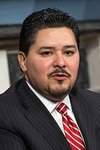A few of our stories and columns are now in front of the paywall. We at The Chief-Leader remain committed to independent reporting on labor and civil service. It's been our mission since 1897. You can have a hand in ensuring that our reporting remains relevant in the decades to come. Consider supporting The Chief, which you can do for as little as $3.20 a month.




Members of the United Federation of Teachers Nov. 2 overwhelmingly ratified a 43-month contract that provides 7.5 percent in raises and makes important changes in Teacher discipline and evaluations while also giving them greater involvement in how many schools will be run.
With 90,000 union members returning ballots, 87 percent voted in favor of the terms, according to the American Arbitration Association, which conducted the tally.
Cements Pay Pattern
Coming after District Council 37 this summer easily approved slightly different terms but with the same cost to the city, the UFT sign-off gives the de Blasio administration contracts with the two-largest municipal unions that will run beyond the end of the Mayor’s term on Dec. 31, 2021 by more than eight months.
It also strengthens the city’s case that the pattern should be honored in an arbitration proceeding involving the Patrolmen’s Benevolent Association, which has insisted that its members should get raises that would bring them in line with the salaries paid to State Troopers working within the five boroughs.
Top pay for Troopers is more than $5,000 above maximum salary for NYPD officers, and that is without counting the location differential that those assigned to New York City receive because of the higher cost of living compared to upstate. There is a gap of more than $11,000 in starting pay as well for the two forces, with even bigger gulfs at various points on the respective salary scales.
A PBA official scoffed when asked whether concern that the UFT deal would undercut its case in arbitration accounted for its Oct. 24 rally outside Mayor de Blasio’s town-hall meeting in Far Rockaway at which President Patrick J. Lynch led a chant of “Coward” and called on him to return to the bargaining table. He noted that the union earlier this year held rallies on the contract stalemate not only outside the Park Slope YMCA where the Mayor has daily morning workouts, but in other cities as far away as Austin, Tex. where he’s made public appearances.
‘Having Our Voices Heard’
When it was noted that this was the first protest staged since the state Public Employment Relations Board in late summer declared an impasse and set in motion the union’s demand for arbitration, the official insisted that did not change the strategy. He pointed out that Mr. Lynch in the past had resumed negotiations and worked out contracts with both Mayor Michael Bloomberg and Mr. de Blasio—21 months earlier—while engaged in arbitration proceedings.
“It’s part of our member activation to have our voices heard by the Mayor,” he explained.
The UFT and Mr. de Blasio have carved out a far-friendlier relationship that was a big factor in several aspects of the new pact that were arguably more important to its members than the wage increases, which will roughly keep pace with projected rises in the cost of living.
A segment of the union’s Teacher and Guidance Counselor memberships will have an opportunity to receive “hard-to-staff differentials” of up to $8,000 annually for working at least three years in schools that have historically been beset by low achievement. That extra pay will be one of the key components of the “Bronx Plan,” which was given its name, Schools Chancellor Richard Carranza said when the contract was announced Oct. 11, because “the preponderance of schools” that will participate are in that borough.
The 180 schools involved will expand the role of Lead Teachers in the professional development of instructors. Credits leading toward master’s degrees and the extra money provided for them on the UFT pay scale will be geared toward courses that are more relevant to Teachers’ classroom work rather than many traditional academic subjects.
Evaluation Changes
Under a revised evaluation system that will not take effect until next September, Teachers rated “ineffective” or “developing” will be observed more, and starting earlier in the school year, to increase the possibility of marked improvement by the following June. Conversely, those with higher evaluations will be subject to observation less frequently than in the past.
Mr. Carranza remarked last month that he intended to change a culture in which the evaluation process seemed predicated on “Let’s get the bad Teachers… If you don’t change it, culture eats strategy for breakfast.”
There are also key disciplinary changes under the contract that affect paraprofessionals represented by the UFT, as well as Teachers. For the Teachers, there is a change that was viewed as offering greater protection to whistle-blowers. In cases where a Teacher contests a reduced rating by claiming that it was spurred not by subpar performance but because the instructor had angered supervisors by either exposing wrongdoing or prodding them to address educational shortcomings, if an arbitrator upholds that claim, the downgrade will immediately be nullified without further review. Until now, the Schools Chancellor had the power to overturn such rulings.
Got It Done Early
UFT President Michael Mulgrew had said that the more-amicable relationship between the union and City Hall was evident from the terms of the deal being working out four months in advance of the expiration of the existing UFT pact. That deal had been extended by 73 days back in June to help cover the cost of another important benefit for union members: six weeks of paid parental leave at full salary.
The first raise under the just-ratified deal will be effective on the first day of the pact, Feb. 14, 2019, with a 2.5-percent hike due on May 14, 2020 and one of 3 percent due on May 14, 2021. The deal expires Sept. 13, 2022.
We depend on the support of readers like you to help keep our publication strong and independent. Join us.
Comments
No comments on this item Please log in to comment by clicking here